Winter months can get tricky for car owners. Besides frequent fog and poor visibility, the weather also affects car engines and electrical circuits that could lead to unexpected problems popping up. This is why car owners are advised to pay a lot more attention to their vehicles during the cold months.
-
Wash the Car Regularly
During the winter season, pollutants in the air combine with fog to form sulphuric and nitric acids, which gradually erode the car's paintwork. Washing your car once a week and wax-polishing once a month protects the paint from erosion. Take extra care of the tires, quarter panels and front grill of your car since pollutants get stuck mostly in this area, and can it get to remove these contaminants. Also, check regularly for frame rust. A rusted frame can break off while driving, posing a risk to other motorists.
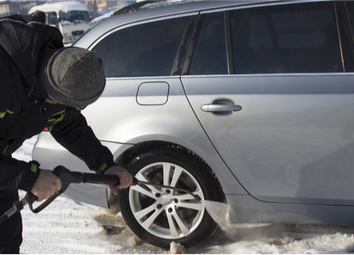
-
Opt for 'W' Marked Engine Oil
Cold weather causes the oil to thicken, making it harder for engines to start. Opt for oils with “W” (Winter) in the viscosity index which makes them suitable for winter conditions. Always check the engine oil of your car before the onset of the winter season. If you feel the need to change it anytime soon, this is the best time to do so. Also, check the radiant cooler and fill it up to the recommended level. Apart from preventing the radiator water from freezing in low temperatures, the coolant also helps in keeping the cabin warm. Keep regular checks to ensure that there are no coolant leaks.
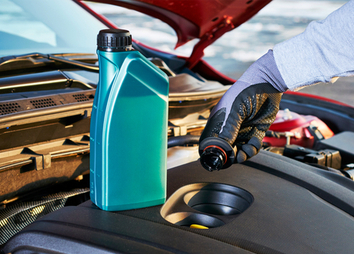
-
Check the Battery
The car battery requires utmost care during the winter as the fluid inside tends to thicken, hindering the conduction of electricity. Check the battery voltage regularly; keep it fully charged.
There are some warning signs to look out for to gauge the battery conditions:
- Dimming headlights
- Cracked battery case
- Rotten smell
Invest in a booster pack or jumper cables. These will serve as a backup plan in case your battery gets exhausted.
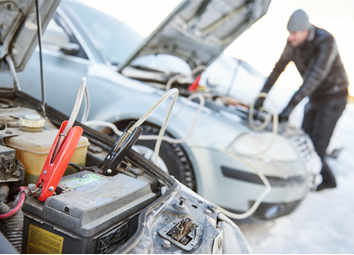
-
Inspect the Lighting System
The car's lighting system needs to be in top order to tackle the low visibility due to fog and even darkness due to fewer hours of daylight. Make sure that the taillights, headlights, and fog lamps are working properly to keep you sharp-sighted on roads. It won't be a bad idea to familiarize yourself with the car lighting system to fully understand its uses and limitations. For example, drivers should know about the daytime running lights and whether these lights are sufficient to illuminate the rear. Also, get familiar with using fog light controls.
-
Keep Tires Properly Inflated
Low temperatures cause car tires to deflate more. The weather also induces a reduction of tire pressure, as well as hinder mileage. Hence, it’s important to check the air and pressure of car tires pressure regularly.
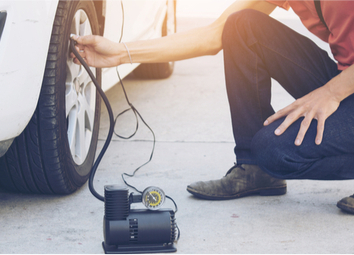
-
Keep the Fuel Tank Full
Two major problems arise when you don’t keep your tank full: Firstly, the condensation can build up in the tank, causing the fuel lines to freeze. Secondly, the fuel pump starts sucking in air, which in turn, heats up. This could lead to expensive damages. Keep a full tank to ensure that the engine runs smoothly, and to keep the internal components safe from damage.
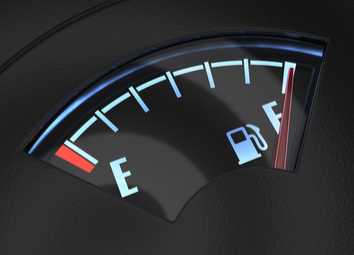
-
Check the Windshield Wipers
This is one of the most important - and the most ignored - aspect when it comes to road safety in winters. Research has proven that even the best windshield blades lose their effectiveness in six months. Any kind of scratches are signs that the wipers need to be replaced. If left unchecked, the scratches will increase, making it difficult for the driver to see clearly. Your windshield wipers need to be in perfect working condition when the visibility is low on foggy days. Don't forget to check the defrosting mechanism on your windshield.

-
Keep the Car Heaters in Proper working order
Get your car heater thoroughly checked before the onset of winter to make sure it’s in working order. Here are some warning signs that need immediate attention:
- It gets foggy inside your car
- There's a fruity odor
- The Coolant get used quickly
- Car engine overheats
If you are facing these problems, it could mean that your heater core needs to be checked. It could also be a sign of clogged heater controls. At times, the dysfunctional thermostat can add to your woes which can turn into expensive repairs unless due attention is paid in earlier stages.
Despite following the above tips, you never know what will happen when you’re out on the roads. It’s prudent to be prepared to tackle any unforeseen circumstances. Purchase a comprehensive motor insurance policy to protect yourself and your vehicle against financial liabilities due to accidents or damages.